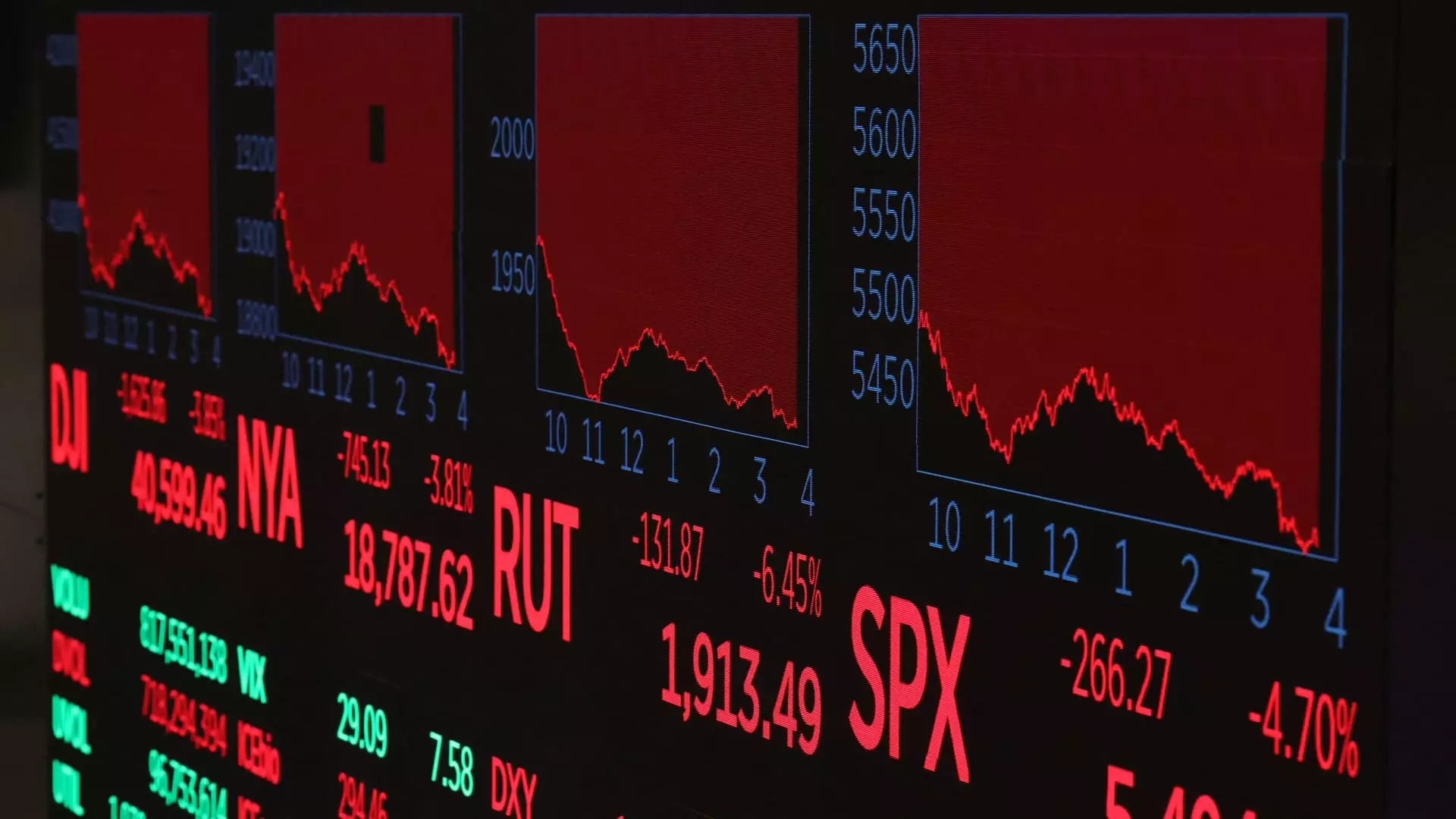In a world gripped by economic uncertainty, the reactions of retail investors can provide insight into the broader market sentiments. Recently, as President Trump unveiled a revised tariff plan that sent Wall Street into a frenzy, a wave of retail investors, new to the game, displayed a strikingly different attitude. Rachel Hazit, a 32-year-old marketer based in Philadelphia with a year’s worth of investment education, epitomizes this phenomenon. While traditional investors were trembling at the prospect of a recession, Hazit viewed the downturn as a golden opportunity, responding by purchasing popular Exchange-Traded Funds (ETFs) like the Vanguard S&P 500 (VOO) and Invesco Nasdaq 100 (QQM). This shift in mentality encapsulates the essence of a new generation of investors willing to actively engage with the markets even amidst chaos.
The concept of “buying the dip” has traditionally been whispered among experienced investors, yet in recent weeks, it has transformed into a clarion call for everyday traders. The S&P 500’s decline, ostensibly a harbinger of doom, became a siren song for Hazit and many like her, who saw stocks not as tumbling assets but as items “on sale.” Such optimism stands in stark contrast to the trepidation seen among institutional investors, who often retreat at the first signs of trouble.
A Divergence in Market Sentiment
Market reactions can often create a misleading narrative. While Wall Street strategists cut their forecasts and raised recession probabilities following Trump’s tariff announcements, retail investors remained buoyant. Data from Vanda Research indicates that as institutional players liquidated their positions in response to market swings, self-directed retail investors flooded the market with cash, making over $3 billion in net purchases when the S&P 500 felt the pinch of the tariff news.
It’s crucial to clarify: this is not merely a feast for speculation, but rather a thoughtful strategy involving a significant number of retail investors who are engaging with the market on their terms. The record net inflows seen on days when traditional indices were plummeting suggest a broader sentiment that’s surprisingly bullish. The question then arises: what does this say about the future of retail investing?
Risky Business: The New Age of Investing
Investing in an unpredictable market landscape inherently comes with risks. The CBOE Volatility Index (VIX) peaked recently, reflecting a level of anxiety not seen since early 2020. Nevertheless, retail traders have adopted resilience—an approach reminiscent of the ‘buy low, sell high’ principle, albeit with a twist. It’s a testament to their belief that engaging with the stock market during downturns yields the highest rewards over the long term.
Emma, an illustrative retail investor, expressed it succinctly: “If there’s a chance to buy assets at a discount, I’m all in.” But the smugness that usually accompanies such determination also invites scrutiny. With countless others echoing a similar sentiment during this phase of economic woes, questions about the sustainability of such an approach naturally surface. Are these investors banking on short-term gains, or do they genuinely possess a long-term vision that eclipses fleeting market fluctuations?
Challenging Conventional Wisdom
While many financial experts preach caution during stormy economic horizons, Hazit’s calculated optimism reflects a deeper shift: a rejection of the conventional wisdom that dissuades risk-taking in dire times. Economic theorists might argue that a downturn signals a need for caution and conservative investing strategies, yet Hazit’s perspective epitomizes a new breed of investor willing to test this traditional narrative.
The ongoing volatility serves as real-time feedback for investors to recalibrate their strategies. This dynamic allows them to take a step beyond mere stock picking; they are betting on indices to safeguard their long-term fortunes. It raises the poignant question: are retail investors inadvertently laying the groundwork for a robust market resurgence, simply by sticking to their guns when everything around them is crashing?
The Balancing Act: Caution in Optimism
Despite their recent courage, the current economic climate’s uncertainties beg for caution. As Hazit aptly noted, the very policies that incentivize stock purchases can stifle consumer spending in other sectors, consequently impacting personal financial well-being. She reflects the delicate balance most retail investors must navigate: rolling the dice on equities while holding onto a healthy degree of skepticism about the overarching economic landscape.
Long-term investor Namann Mian chooses to embrace the uncertainty without allowing it to disrupt his strategy. His dispassionate, almost clinical approach enables him to decipher the noise of the market without being ensnared by it. While the prospect of a recession looms large, Mian holds steadfast in his belief that times of adversity can equally yield opportunities for growth, reinforcing the notion that even in chaotic markets, individual agency remains a powerful catalyst for economic resilience.
As the dust settles and retail investors continue to pour into stocks, the aftermath of this market turmoil will reveal whether their determination and bold tactics can withstand the test of time. The question now lies not in whether buying the dip was the right call, but rather how it will reshape the fabric of investing as we know it.

